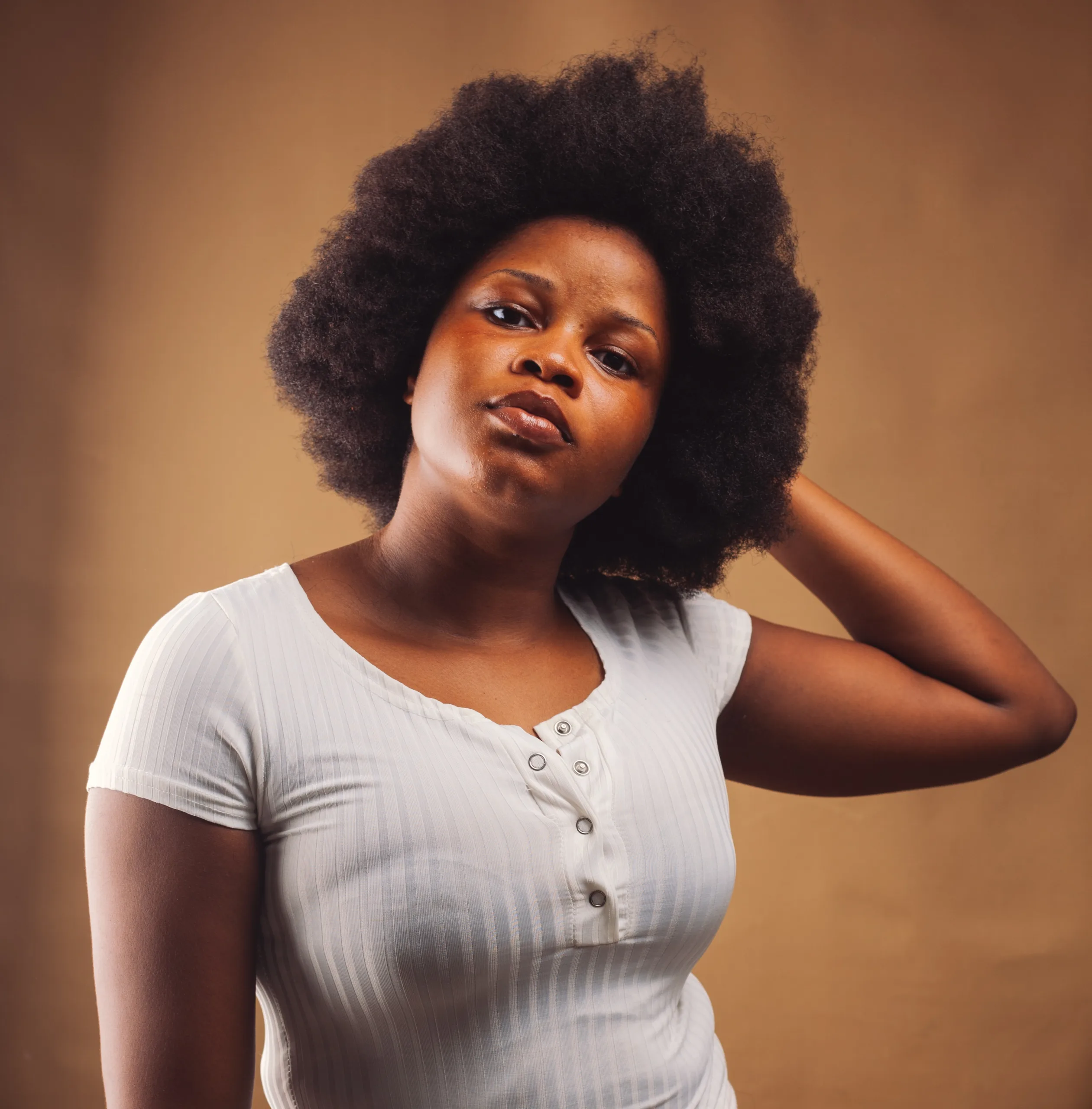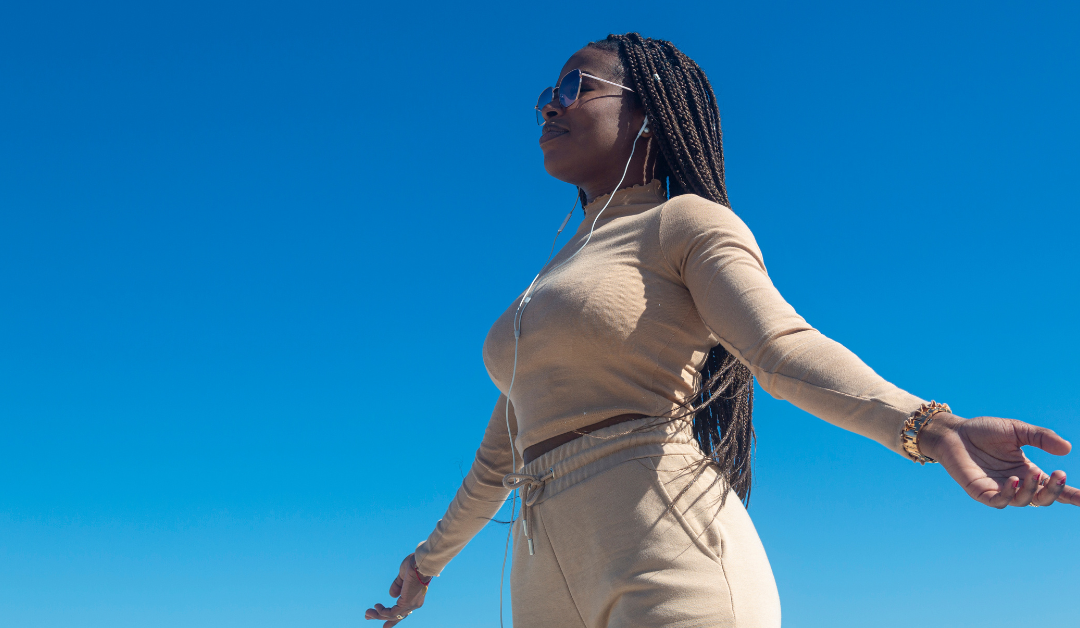Anxiety, a universal human experience that affects people from all walks of life. Yet, when we explore the journey of anxiety among Black women, we uncover a multifaceted landscape shaped by unique factors including cultural, societal, and personal contexts. In this blog post, we will dive beneath the surface to reveal lesser-known aspects of anxiety in Black women, shedding light on hidden struggles, uncharted territory, and the additional stressors of network stress.
In this blog post, we will explore what anxiety may look like in the context of a Black woman’s experience.
Unveiling the Hidden Struggle of Anxiety Among Black Women
Anxiety can manifest in Black women through various avenues, and these expressions of anxiety can be highly individualized. Common presentations include physical symptoms like muscle tension and headaches, excessive worry about personal safety and racial disparities, rumination on negative thoughts, hypervigilance stemming from historical and ongoing racial injustices, and social anxiety in anticipation of racial bias. Some may also experience perfectionism and imposter syndrome, striving for excellence in response to stereotypes or societal pressures. Depressive symptoms may co-occur, alongside reluctance to seek help due to cultural stigma. These manifestations of anxiety highlight the multifaceted nature of the experience, necessitating culturally sensitive mental health support to address the unique challenges and needs of Black women effectively. Let’s consider factors that contribute to developing the anxious Black female.
The Intersection of Identities
There’s no acknowledgment of the Black woman without recognizing the intersectionality of race and gender. Black women face a unique combination of racial and gender biases, often experiencing discrimination that is different from what Black men or white women encounter.

W.E.B. Du Bois coined the term “double consciousness” to describe the dual identity that many Black individuals, including Black women, experience. They are not only aware of their own individual identity but also of how they are perceived by others based on their race and gender. This heightened awareness can lead to a sense of always being “on guard” and can contribute to heightened stress and anxiety. Acknowledging and addressing these intersecting biases is crucial in providing the support and resources necessary to help Black women manage anxiety and promote their overall mental well-being.
Historical Trauma and Anxiety
The historical trauma of slavery, segregation, and systemic racism in the United States has left a deep and lasting impact on Black communities. The legacy of discrimination, violence, and injustice is not a distant memory but an ongoing reality for many Black women. Understanding this historical context is crucial in recognizing the unique psychological challenges they face in the present day.
Intergenerational trauma can sensitize individuals to stressors. Black women with a family history of trauma may have a heightened physiological stress response. Their bodies may react more intensely to stressors, rendering them more prone to intense emotional reactions when faced with challenging situations. Black women with a family history of trauma may find themselves grappling with a hyperactive “fight or flight” response, which can lead to heightened feelings of apprehension and restlessness.
The Impact of Network Stress
Within the Black community, there can be strong expectations for Black women to provide emotional support and strength to their families and communities. While this speaks to their resilience, it can also create added stress. The pressure to be a pillar of support for others can lead to anxiety as they may neglect their own well-being.
Cheryl Woods Giscombe’s research highlights the concept of network stress, where individuals, particularly Black women, may take on the stressors and burdens of those in their social networks. This phenomenon can result in an added layer of anxiety as Black women may feel responsible for not only managing their own stress but also the stress of their loved ones, communities, and networks. This additional emotional labor can contribute significantly to their anxiety.
The Burden of Stereotypes and Strength
The Black woman’s tendency to show up for her people has produced unintended consequences of a noble act. The stereotype of the “Strong Black Woman” carries a heavy burden. While resilience is a commendable trait, this stereotype often compels Black women to suppress their emotional vulnerabilities. They may hesitate to seek help for anxiety, fearing that acknowledging their struggles will be seen as a deviation from this perceived strength. The emotional toll of constantly meeting these expectations can be overwhelming, creating a unique aspect of anxiety among Black women.
The fear of confirming negative stereotypes can also be a significant source of self-doubt and hypervigilance. In academic or professional settings, Black women may worry that their performance will be perceived as representative of their entire racial or gender group. This fear of stereotype confirmation can create a constant pressure to excel and avoid any perceived failure, regardless of the cost to self.

Navigating Anxiety in Black Women
Each of the instances discussed above can influence the development of strategic coping mechanisms. While these strategies may have served as adaptive survival mechanisms in the past, they can sometimes translate into maladaptive or dysfunctional responses in present contexts. For instance, the act of suppressing feelings or avoiding difficult conversations can eventually lead to universal emotional restraint, intensifying the emotional turmoil experienced.
To truly understand and support Black women in their battle with anxiety, we must navigate this complexity with empathy and awareness. The experience of anxiety among Black women is a multifaceted journey, intricately woven with historical trauma, intersecting identities, societal pressures, and the added stress of network stress.
By unveiling these hidden struggles and delving into the lesser-known facets of anxiety in Black women, we recognize not only their vulnerabilities but also their strength and resilience. In acknowledging these nuances and working collectively to address them, we can pave the way for a more compassionate and inclusive mental health landscape. It is a landscape where all individuals, regardless of their race or gender, can find the support, understanding, and healing they deserve, both in the physical and digital realms.
Get Help with Anxiety Therapy in Atlanta, GA
At Simplicity Psychotherapy, we assist you in learning to identify and acknowledge negative thought patterns and emotional cycles. Your therapist teaches you techniques to challenge destructive thoughts and emotions using skills like reframing and delayed engagement. You will also learn to replace negative thoughts with realistic thinking, which informs emotions and behavior.
If you are interested in starting anxiety therapy follow these steps:
-
- Reach out for a free consultation with us
- Schedule your first appointment for anxiety help
- Start living and enjoying your life
Other Therapy Services We Offer in Atlanta, GA
Our caring therapists offer a variety of services in order to support your mental health and well-being. This includes affirming LGBTQIA+ therapy, therapy for Black women, and therapy for Black men. Along with depression therapy and grief counseling. In addition to relationship therapy, marriage counseling, and couples therapy. We look forward to supporting you so that you can start living your best life.
The material provided in this blog post was generated based on a combination of general professional knowledge about the subject matter discussed as well as common practices and recommendations in psychology and healthcare.
Note: While the information above is intended to provide insight as you begin your journey they are not intended to replace the guidance of a trained professional. Exploring these concerns in the presence of a licensed counselor or other licensed professional may provide deeper insight and assist in managing more multifaceted concerns that may arise.

About the Author
Hi, I’m Rayvéne Whatley, a Licensed Professional Counselor practicing in Georgia, Louisiana, and Texas. I’m passionate about empowering people, especially Black men and women, to remove the mask of other people’s expectations and step into their authentic selves.
Much of my work focuses on addressing the impact of racial trauma on mental health. The intersection of identity, systemic stressors, and societal expectations can create layers of anxiety, self-doubt, and emotional pain. I help clients navigate these experiences by reexamining beliefs that no longer align with their goals and replacing them with ones that support their desires and values.
Through my writing, I aim to share insights and resources to help you better understand the connection between racial trauma and mental well-being, while offering tools to reclaim your peace and balance.
Whether you’re here for guidance, validation, or inspiration, I’m glad you’ve found this space.Healing isn’t always easy, but it’s worth it—and you don’t have to do it alone.


